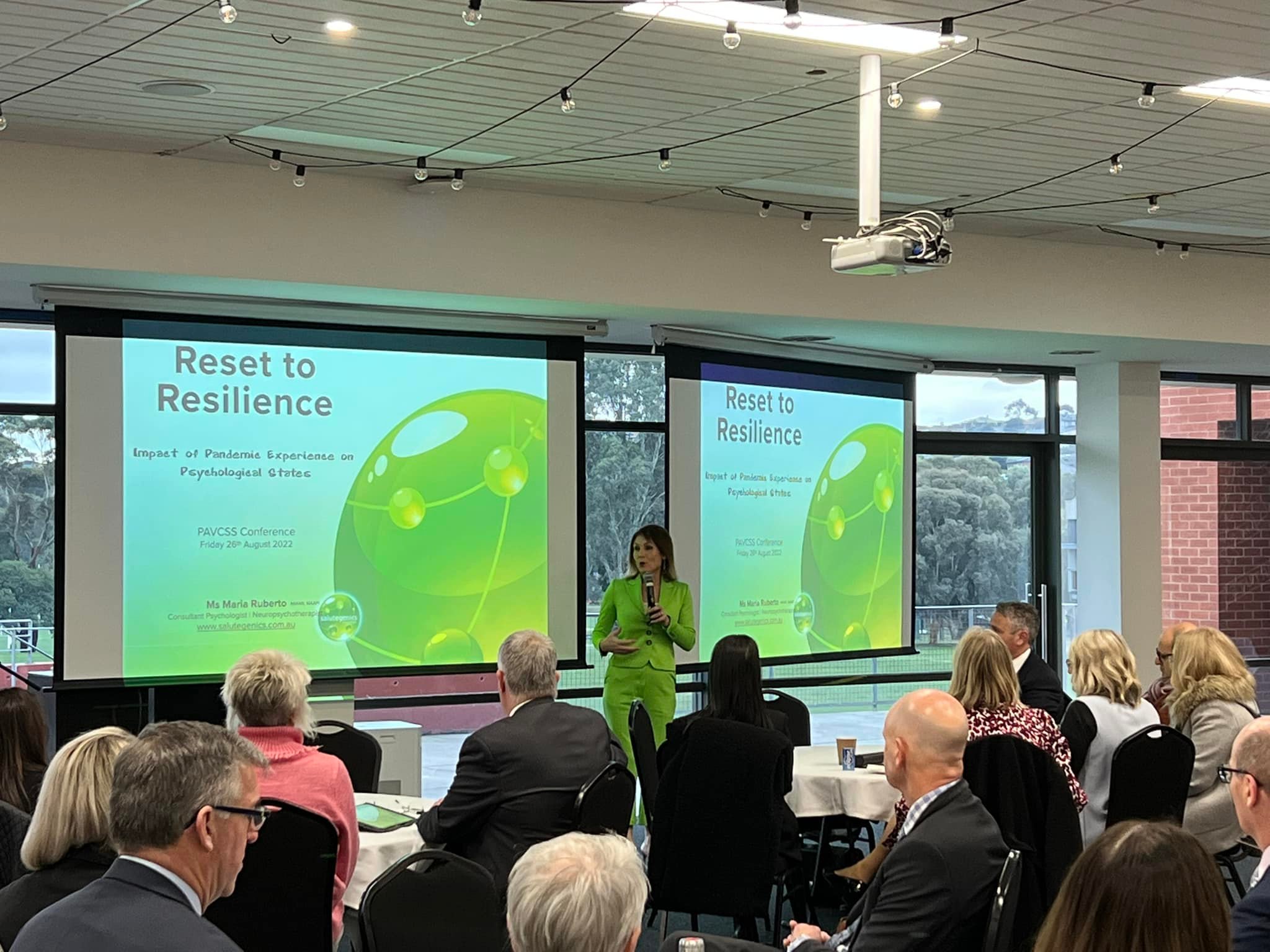Resilience is the ability to adapt, recover, and grow through life’s challenges, not by avoiding stress or hardship, but by learning how to respond in ways that protect and strengthen our wellbeing.
It’s not a fixed trait. It’s a set of learnable skills shaped by biology, experience, and environment. And like any skill, resilience can be built with the right knowledge, practice, and support.
Understanding Resilience
Research shows that resilient people are not free from stress, uncertainty, or adversity. What sets them apart is how they respond.
Resilience involves emotional regulation, flexible thinking, and a sense of control over your actions and choices. It supports your capacity to manage pressure, stay connected to your values, and recover with purpose after setbacks.
At Salutegenics, we start with the science, helping people understand the biology that influences behaviour. We draw on neuroscience and psychology to uncover what resilience looks like in the brain, and how it can be strengthened over time.
The Brain’s Role in Resilience
Thanks to neuroplasticity, the brain can form new connections and adapt to changing circumstances. This ability is central to resilience.
When the brain perceives a threat, it prepares the body for a stress response. But with awareness and training, we can learn to shift that response: to stay calm under pressure, access problem-solving skills, and engage with others constructively.
That’s where brain-based tools come in. By understanding how your nervous system shapes your reactions, you can begin to make more intentional choices in moments of difficulty.
A Salutogenic Approach to Resilience
Salutogenesis, the science of what creates health, encourages us to focus on what supports wellbeing, rather than what causes dysfunction.
This mindset is central to how we approach resilience. Instead of asking, “What’s wrong and how do we fix it?” we ask, “What’s strong, and how can we build on it?”
Resilience is nurtured when people feel connected, capable, and purposeful. By identifying and strengthening these internal resources, we help individuals and teams move from just surviving to genuinely thriving.
What Helps Build Resilience?
While everyone’s path is different, research consistently highlights key protective factors that support resilience:
- Emotional awareness and regulation
- Positive relationships and social support
- A sense of purpose or meaning
- Problem-solving and flexible thinking
- Confidence in one’s ability to influence outcomes
These are not personality traits, they are capacities that can be developed, with effort and guidance.
Why It Matters
Resilience affects every part of life, from how we handle conflict, to how we manage change, to how we support others.
In organisations, it reduces burnout and enhances performance. In schools, it supports learning and emotional development. In families and communities, it strengthens connection and collective wellbeing.
Building resilience doesn’t mean eliminating stress, it means responding to it in a way that supports health, growth, and recovery.
Learn, Practise, Strengthen
At Salutegenics, we help individuals and teams explore resilience from the inside out, not through quick fixes, but through meaningful understanding. Our work is grounded in neuroscience, guided by up-to-date research, and made practical for real life.
Resilience isn’t something you either have or don’t. It’s something you can grow. And it starts with understanding how your brain and body work together in moments of challenge.










